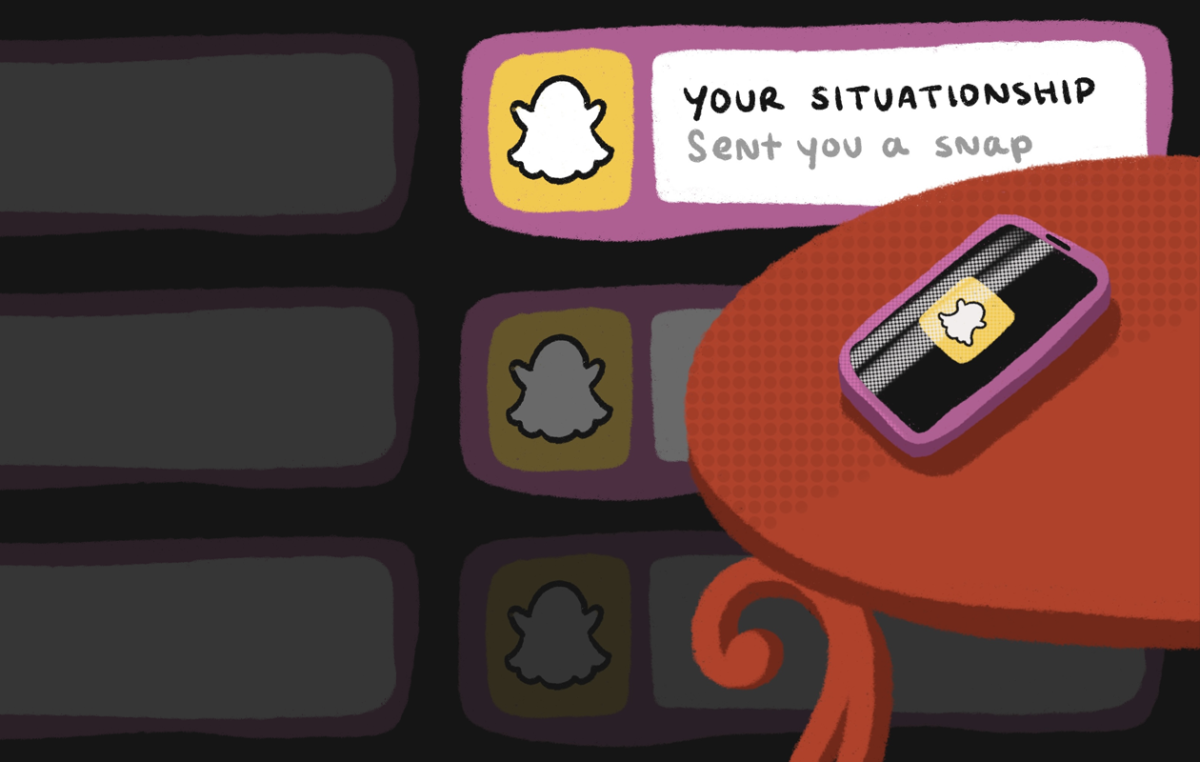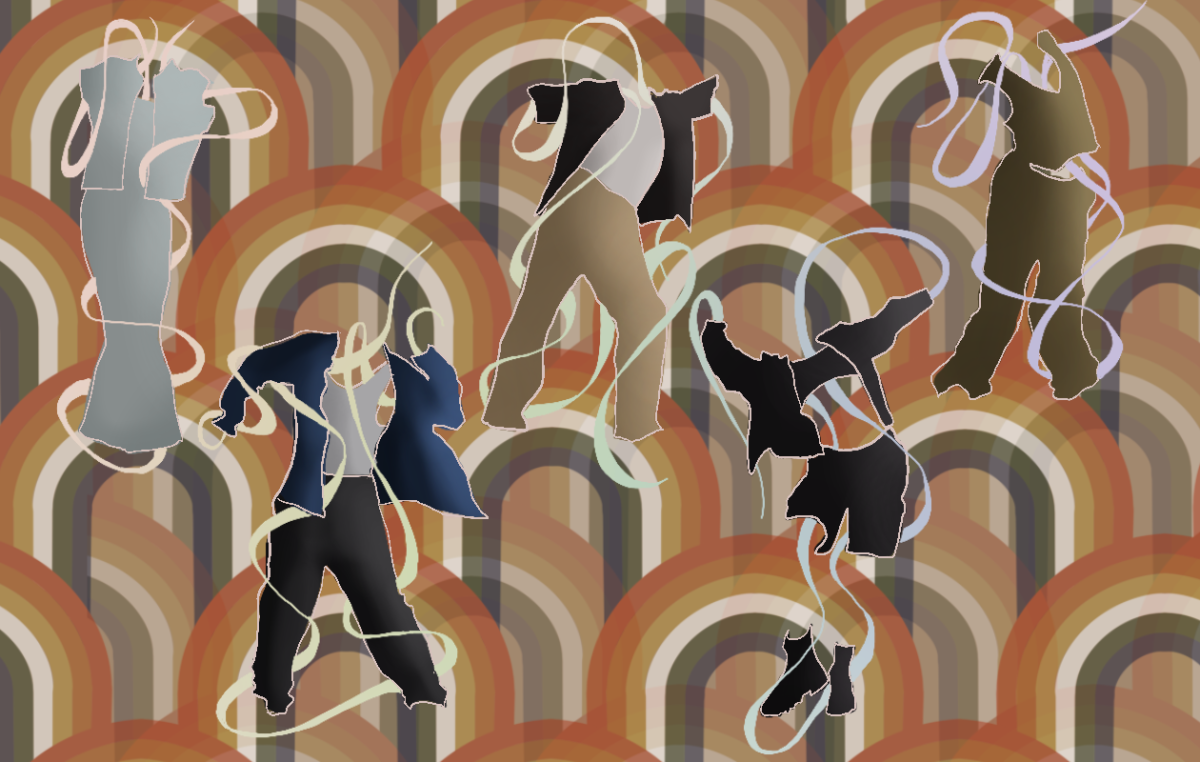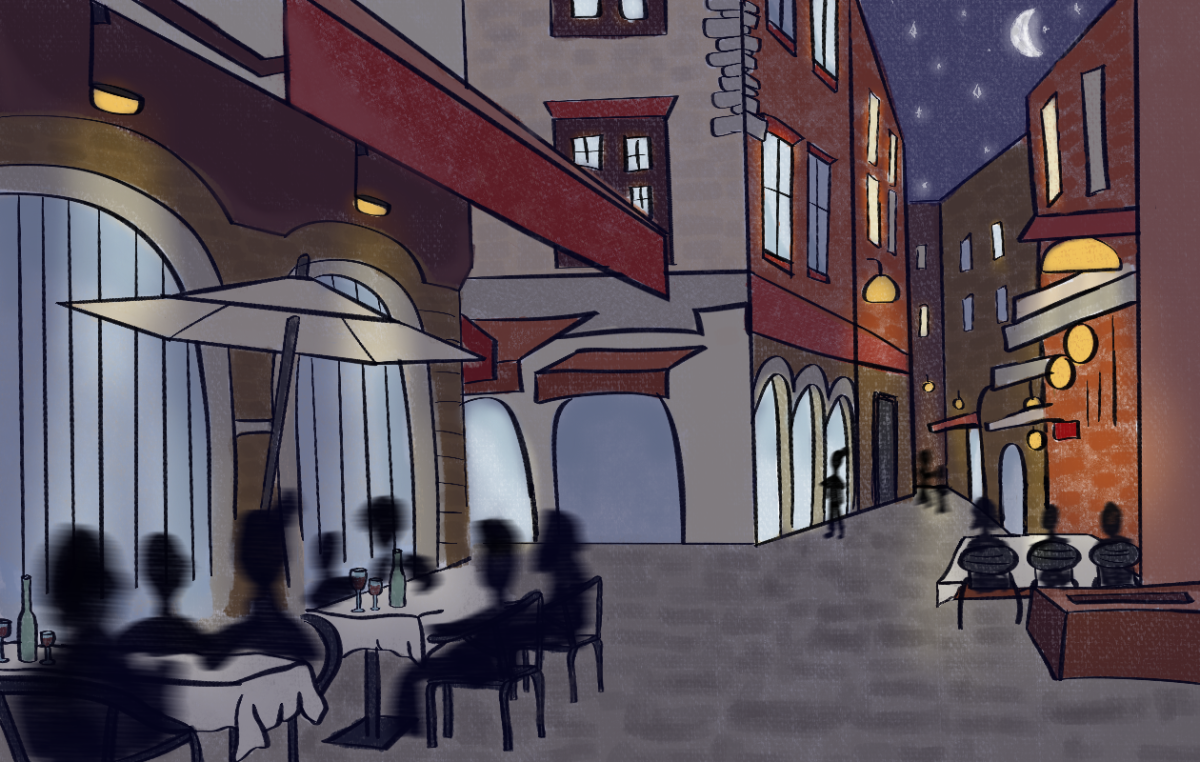Caught in a paradox between romance and lack of commitment, “situationships” are the emotional reckonings of Gen Z dating culture. Stuck in a gray area, we are left confused trying to navigate complicated emotions and discussions of commitment. Gen Z has an acute fear and aversion to the typical “committed relationships” of the past, thus the term “situationship” has evolved to compensate for that fear. The term is left open-ended and ambiguous as a means to be vague with relationship boundaries and expectations. When two people are in a romantic relationship without a label or definition, they have involved themselves in a “situationship.”
As the term is inherently nebulous, one party can manipulate the “rules” and “understandings” of the relationship fairly easily, causing emotional turmoil and confusion, but most importantly, heartbreak. Somebody always gets burned in these types of relationships, because they unintentionally get attached or want to pursue the relationship further, while the other party does not reciprocate those feelings.
A Dating Revolution
Gen Z has taken a pragmatic approach to dating, as they seem to have lowered their expectations and are accepting of non-committal partners. In some cases, a situationship can be beneficial for both parties, such as when they know one person is moving away or leaving for college, they are not “looking for anything serious” or they just got out of a long-term relationship. Not all situationships are negative, but they represent the drastic shift in dating culture in the modern day.
Gen Z is leading a dating revolution, in which they have scrapped dating altogether and have entered a new territory. The days when a few dates defined a relationship are long over, and today’s teens have shifted their mindsets when it comes to dating and relationships. Instead, many relationships never make it out of the situationship stage and they fizzle out before any labels are placed.
The problem with situationships is that two people could have magical movie moments together and interactions like those of typical committed relationships, but it never progresses any further because one party does not want to commit. Situationships are like trailers for an upcoming movie or free trials to a subscription service: a teaser of the future where you never get to see the outcome.
In a situationship, romance is thrown out the window for fear of seeming too interested. Most interactions are initiated through text or Snapchat and phone calls and dates are mostly out of the question. Some see Facetiming as “too much” or too reflective of a committed relationship. Additionally, feelings and emotions are not expressed in their entirety, thus the whole situation becomes complicated and messy. It would be easier to just stop messing around and start dating.
If the two parties are not on the same page about their expectations, it can all end in pain and heartbreak. At least with a typical relationship, there is a reason for the breakup. With situationships, however, it feels as if things can end without explanation. When situationships end, the result can feel eerily similar to a breakup, but the fact that the “couple” was never officially together downplays the situation. Feelings are not spared, but the question remains: should these feelings still be validated?
Just because it was not a typical committed relationship should not mean that any heartbreak should be downplayed. Heartbreak is heartbreak no matter the circumstances. Every relationship, no matter how serious, teaches a lesson and what to look for in a potential partner, so maybe that is why Gen Z values these casual connections so much. They are a way to feel connected without being committed.
Snapchat Is Evolving Dating Culture
It is no secret that Snapchat hinders face-to-face communication. Most college relationships start with a guy or girl asking for their romantic interest’s Snapchat and the basis of the relationship is formed on whether they respond to a picture or become ranked on a “best friends list.” Without Snapchat though, would situationships be as prevalent?
Snapchat has become more of a dating app than anything else, as individuals use it to communicate with their love interests. However, it is replacing authentic human connection with instant gratification that may or may not be genuine. Moods are determined by getting a snap back or not, and how long it takes for them to respond. Instead of being asked out on dates in person, individuals get asked for their Snapchat in the hopes it will lead to a date in the future. The process of going on dates is prolonged by another Gen Z term called the “talking stage” where two people get to know each other before they go out. Yet this stage can come with caviates and questions as well. Talks of being “exclusive” or “not exclusive” cloud the talking stage with even more confusion and misunderstanding of what is considered acceptable within this period of time.
Snapchat provides something that real-life conversations do not: convenience. Initiating a conversation on Snapchat is easier and less nerve-wracking than talking in person. Consequently, communication and connections are stunted because the real and true versions of people are not shown.
Where is this all coming from?
Twenty years ago, there was no such thing as situationships. If a guy wanted to ask a girl out, he would and that would be the end of the story. There was no Snapchat, no “talking stages,” and no drama. Feelings were talked about and connections were made face-to-face. People got to know each other in person and could decide whether they wanted to pursue anything further.
Gen Z is embracing this middle ground, which is something that older generations were accustomed to avoid. The rise of situationships just goes to show that teens and young adults have an updated mindset toward dating and relationships and are not looking to prioritize commitment. This generation has grown to fear commitment, maybe because there are too many options. The ability to swipe through endless dating profiles certainly does not help the situation. Nobody wants to commit to one person when there is a multitude of visible options, so instead they settle for situationships. Although dating habits are changing, it reflects the independent nature of this generation and that they do not need a co-dependent relationship to be happy.
Support Student Media
Hi! I’m Annie Gleydura, A Magazine’s editor-in-chief. My staff and I are committed to bringing you the most important and entertaining news from the realms of fashion, beauty and culture. We are full-time students and hard-working journalists. While we get support from the student media fee and earned revenue such as advertising, both of those continue to decline. Your generous gift of any amount will help enhance our student experience as we grow into working professionals. Please go here to donate to A Magazine.



















